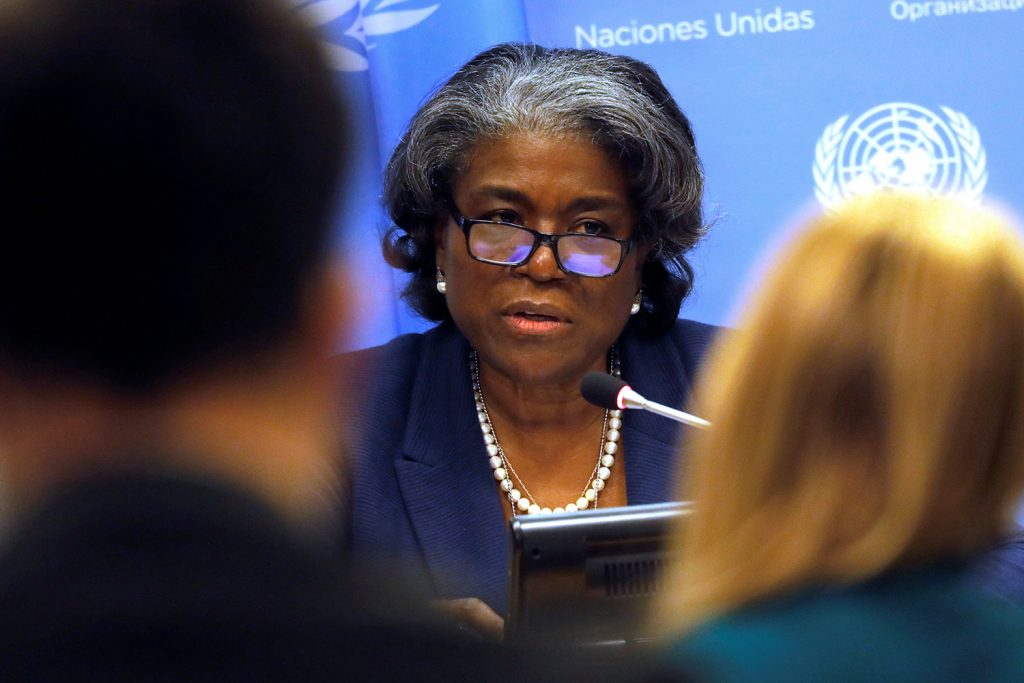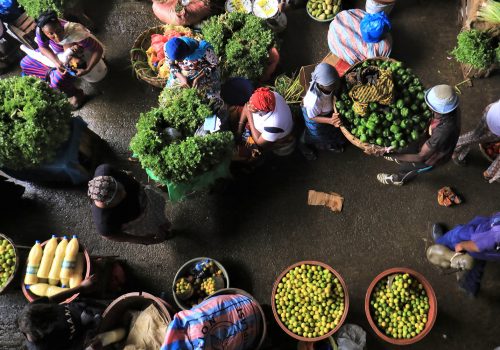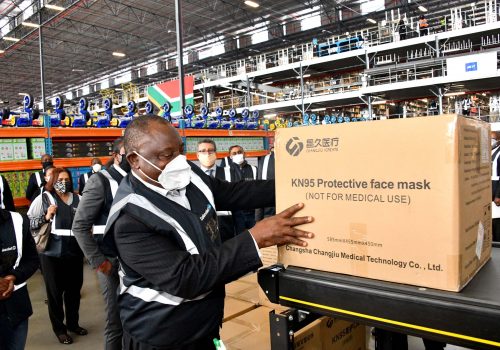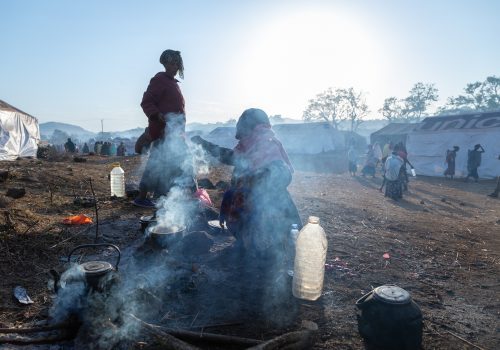Although Africa continues to face challenges like the pandemic, terrorism, and poverty, the Biden administration understands that “we need to focus on the opportunities” in working with the continent, said US Representative to the United Nations Ambassador Linda Thomas-Greenfield.
Thomas-Greenfield spoke about US President Joe Biden’s outlook on Africa with Ambassador Rama Yade, director of the Atlantic Council’s Africa Center, at an event celebrating Africa Day and introducing the Africa Center’s new team and mission. She added that while Africa hosts many of the world’s fastest-growing economies, COVID-19 has caused an alarming crisis.
“In order for those countries to come back, they need to diversify their economies, they need to rebuild their capacity, and they need to harness the extraordinary opportunity that their youth provide for them,” Thomas-Greenfield said. It will be important to encourage that young population, she added, as they can help “build this continent into a place that we can all be proud of being a part of.”
So where should US foreign policy on Africa begin? Here are key takeaways from the conversation.
Where there’s success—and where there’s concern
- Thomas-Greenfield singled out Liberia for its transformation after civil wars that, together, lasted from 1989 to 2003 and killed up to 250,000 people: “Liberia eventually came out of that war electing the first woman ever to be elected a president on the continent of Africa… and she came with a firm commitment to helping Liberia become normal again and helping children find a future that was not marred by the sound of gunfire.” Thomas-Greenfield, who served as US ambassador to Liberia from 2008 to 2012, recalled her experience working with then-Liberian President Ellen Johnson Sirleaf on that rebuilding effort.
- Ethiopia had been considered “on the rise” under Prime Minister Abiy Ahmed, which makes the crisis in Tigray “extraordinarily disappointing,” Thomas-Greenfield said. She maintained that the United States has “been engaged diplomatically—and aggressively diplomatically” in Ethiopia, including by sending Senator Chris Coons (D-DE) to secure commitments from Abiy to address the crisis in March. She noted that while “some of those commitments were honored; others were not,” like one requiring Eritrean troops who had committed atrocities to leave Tigray. Those troops entered the region in November after Abiy sent Ethiopian forces there. The US State Department also recently announced restrictions on US economic and security assistance to Ethiopia, plus visa restrictions for some Ethiopian and Eritrean government officials and security-force members.
- The Democratic Republic of the Congo (DRC), beset by violence, displacement, disease, and poverty, is an overlooked humanitarian crisis, Thomas-Greenfield said. In May, the Allied Democratic Forces militia attacked the UN peacekeeping mission in the DRC, killing one Malawian peacekeeper. She added that the United States will need “to impress upon [DRC leaders] the importance of how they should address the needs of the people of the DRC.”
Reaching across the Atlantic
- Marking the anniversary of the killing of George Floyd by Minneapolis police, Thomas-Greenfield said the event “was traumatizing” to African Americans and even resonated across the Atlantic Ocean. “For the first time, I actually heard African countries and African leaders issue statements on” what happened to Floyd, after she had previously wondered “where were the voices of Africans when events taking place in the United States were affecting their descendants in this country.”
- But US strife can also serve as a model of resilience, Thomas-Greenfield said. The January 6 riots at the US Capitol “showed our imperfections for the entire world to see” but also proved that the United States’ “strong institutions can stand against any attack.” While Africans have already “affirmed that democracy is the best way forward for the continent,” Thomas-Greenfield noted that leadership is lacking. “Leadership that is committed to the people: That’s something that is a work in progress across the continent.”
- Thomas-Greenfield said that there is a missed opportunity between the African diaspora community and those who live in Africa “to really harness our relationships [and] to empower each other.” She added that there are African Americans who feel a close emotional connection to Africa, but they don’t always feel as though Africans share that connection. “I think the next step… is for the African continent to fully embrace their relatives in the United States,” she advised.
Katherine Walla is assistant director of editorial at the Atlantic Council.
Further reading
Image: New US Ambassador to the United Nations, Linda Thomas-Greenfield, holds a news conference to mark the start of the US presidency of the UN Security Council for March, at UN headquarters in New York on March 1, 2021. Photo via REUTERS/Mike Segar.



